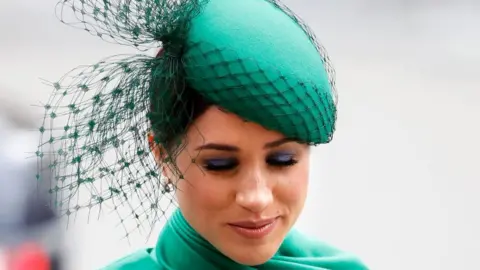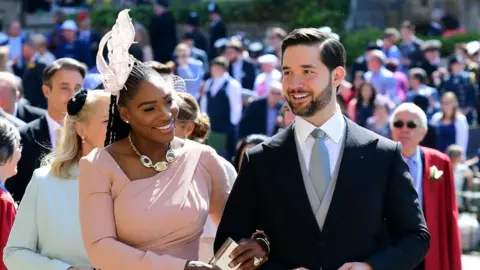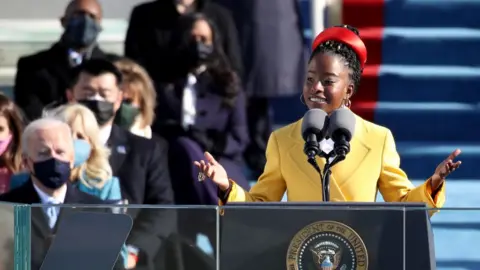Meghan and Harry interview: 'Royalty is not a shield from the despair of racism'
 Getty Images
Getty ImagesIn her emotional interview with broadcaster Oprah Winfrey, the Duchess of Sussex said that racism she experienced as a member of the British Royal Family contributed to her having suicidal thoughts.
Racism from within the Royal household and the media had played a part in her feeling she "didn't want to be alive anymore", Meghan said.
Watching in the US, a number of prominent black women said this showed the devastating effect of bigotry.
The impact of "systematic oppression and victimisation are devastating, isolating and all too often lethal," tennis star Serena Williams, who is a friend of Meghan, posted on Instagram.
Others said Americans were likely to be shocked by Meghan's revelation that concerns were raised about the colour of the couple's baby's skin.
The Royal Family has not yet responded to the claims made by Meghan and Prince Harry.
 AFP
AFPWriting that she knew first-hand how sexism and racism were used "to vilify" women of colour, Williams said: "I want Meghan's daughter, my daughter and your daughter to live in a society driven by respect."
The couple revealed in the interview that they are expecting a baby girl in the summer.
Bernice King, daughter of the civil rights leader Martin Luther King, tweeted "royalty is not a shield from the devastation and despair of racism", adding: "I'm grateful that Meghan Markle is still here."
'Past the line'
Talking about her and Prince Harry's son Archie, Meghan said that within the Royal household there were "concerns and conversations about how dark his skin might be when he's born".
Erin Vanderhoof, a journalist with Vanity Fair magazine, told the BBC that it was "really really taboo" in America to ask questions about a baby's skin colour, calling it "past the line".
"That taboo against inter-racial marriage and the ways that it does still survive is something that we know as being racist," she explained.
Although she suggested most people in the US understood that the Royal Family was "not representative" of all British people, Ms Vanderhoof said that seeing "a self-made person rejected and mocked" nonetheless confirmed some ideas about elitism in Britain.
Meanwhile, Stephanie Guerilus, secretary of the New York Association of Black Journalists, told BBC News that "bullying Meghan Markle has become a national past-time" in Britain.
Enquiring about a baby's skin tone could come from ignorance, she said, but asking questions in succession would suggest to her that they were motivated by racism.
In asking these questions, "you are othering this child while he is still in the womb," she explained.
 Getty Images
Getty ImagesMeghan's candour and "brave" decision to leave the Royal Family was also praised, including by US Youth Poet Laureate Amanda Gorman.
"Meghan's strength will certainly redefine family everywhere," she wrote on Twitter.
"Think of the women who will be inspired to stand up for their lives, the partners who will be kinder and more courageous than the kin they were born into," she said.
In Britain too, some black women have reacted to the interview. Political and women's rights activist Dr Shola Mos-Shogbamimu told BBC News that "racism is so normalised" that many white viewers would deny that what Meghan experienced was racism.
People "want to deny that the Royal Family as an institution is rooted in colonialism, racism and white supremacy", she added.
While the couple said they had difficult moments with some members of the Royal Family, including Harry's father Prince Charles, they talked fondly about the Queen who Meghan said reminded her of her grandmother.
